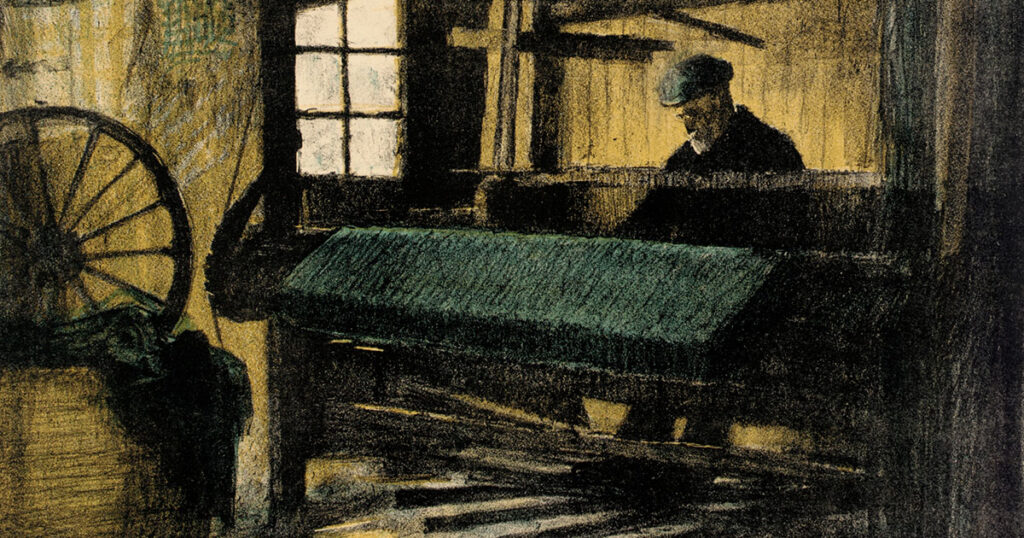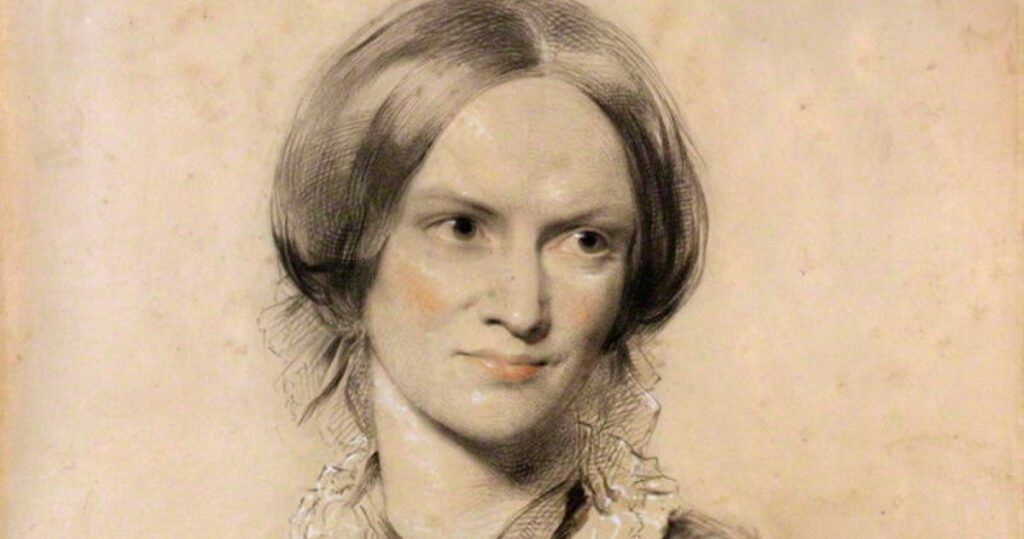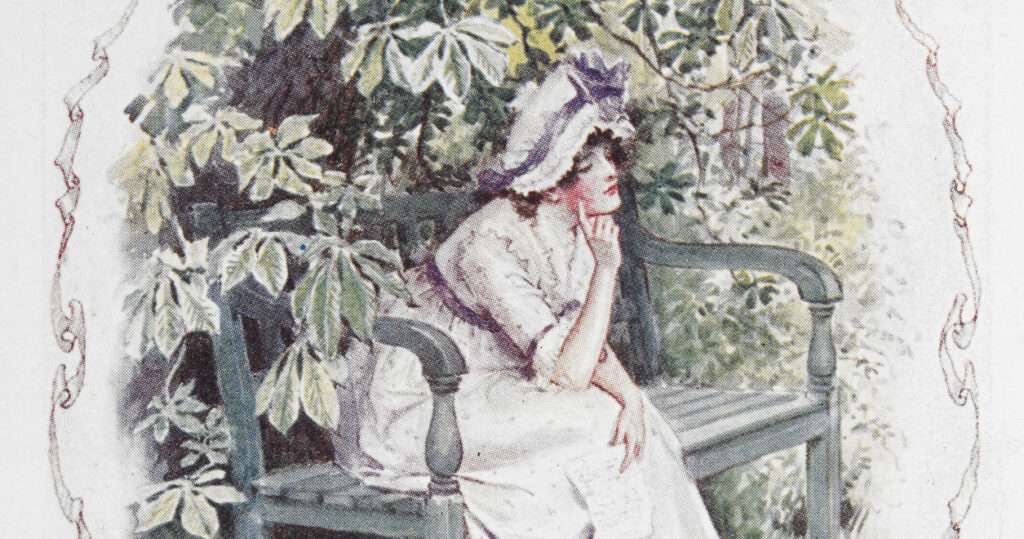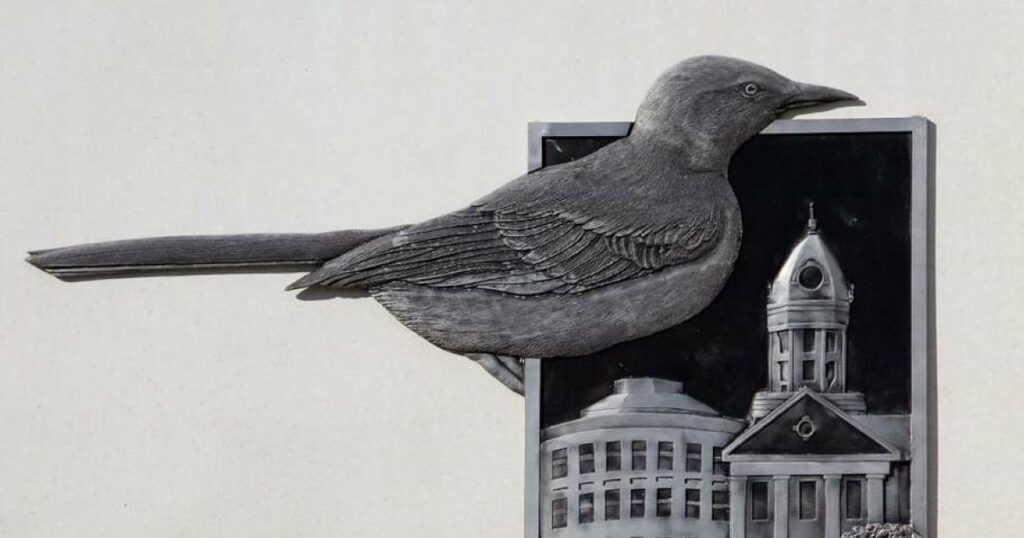A literary reflection by Joel Kurz on George Eliot's Silas Marner. This is one installment of a monthly series providing reflections on works of literature from a Lutheran perspective.
Imagine that you’re at the perceived prime of your life: you’re young and have reliable income, you have a trusted friend and are engaged to be married, you’re deeply rooted in the faith and strongly tied to your congregation … but then, your friend suggests that you’ve given yourself over to the Evil One; you’re accused and declared guilty of stealing church money by congregational leadership. You assert your innocence and keep repeating, “God will clear me!” but it does no good. Your whole life unravels before your eyes.
Suddenly, you realize the flaw in the charges, that you’ve been betrayed by your friend who’s woven a grand deception, and state for all to hear: “There is no just God that governs the earth righteously, but a God of lies, that bears witness at the innocent.” You go home in stunned despair, brooding over what to do, and then you get word from your dearly beloved that the marriage is off. What is there to do but sink into yourself, do your work, and try to make it through each day? Within a month, you hear that your best friend and former fiancée have gotten married, so you leave the city and go far away to a village where nobody knows you. What will become of your life? How will you endure every excruciating day, let alone, all of your unfolding existence?
This is exactly what George Eliot (Mary Ann Evans) imagined, examined and masterfully told in her 1861 novel Silas Marner: The Weaver of Raveloe. We might talk about “the fabric of life” and the chaos that ensues when everything comes “unraveled,” but Silas knew from his skill at the loom how threads woven together are akin to lives bound together, as well as the precision in involved in “raveling out” a single thread from a textile. Silas’ life was like a thread “raveled out” — or removed — from a piece of cloth by the very ones with whom he was interwoven, yet, even the seemingly hopeless suffering he endured proves the means of weaving him into a new community, a rekindled faith and a name of good reputation.
Silas’ shrunken soul
Exiled from his former worshipping community that was “the fostering home of his religious emotions” — that was “Christianity and God’s kingdom upon earth to him” — Silas fell into a new rhythm of life, weaving “like the spider, from pure impulse, without reflection.” His work kept his faith in God and love toward others numbed in embittered pain while also bringing in a good deal of money; so much that “his life had reduced to the functions of weaving and hoarding, without any contemplation of an end toward which the functions tended.” Silas also remained isolated from his community — though the villagers of Raveloe valued him for his ability, they held him at a distance and regarded him as a curious enigma.
Fifteen years in, however, the fabric of his life — and that of Raveloe — became significantly altered by the loss of his wealth and the discovery of a newly orphaned child.
Though wealth had captivated and consumed Silas’ attention, it also emphasized a profound emptiness, especially when contrasted with the wholeness found in love toward God with one’s entirety and the resulting love towards fellow people (as Jesus demonstrated with the man of many possessions in Matthew 19:16–22).
This profound emptiness peaks when Silas discovers that his hoarded treasure has been stolen — he is overcome by a sense of utter devastation and impending doom, even as it’s Christmas Day and the gift of Christ’s birth is stirring songs of joy and acts of kindness in others. For Silas, “the fountains of human love and of faith in a divine love had not yet been unlocked, and his soul was still the shrunken rivulet.” Even more sadly, “nobody in the world but himself knew that he was the same Silas Marner who had once loved his fellow with tender love, and trusted an unseen goodness.”
Then, little Eppie literally toddles through the open door of Silas’ house and winds up at his fireplace on a frigid New Year’s Eve. The glint of her gold hair makes him think, in his dazed confusion, that his lost treasure had been restored. But as he realizes his mistake, the stolen gold quickly becomes nothing to him, and he sees the immense worth of tending to this little orphaned girl. Even though Eppie required everything of him who was adrift in confusion about how he himself would make it through life, Silas was broken open in total concern for her and doggedly determined to raise her through childhood.
What Silas realized was this: “Unlike the gold which needed nothing, and must be worshipped in close-locked solitude … Eppie was a creature of endless claims. … The gold had kept his thoughts in an ever-repeated circle, leading to nothing beyond itself; but Eppie was an object of compacted changes and hopes.” Eppie brought Silas out of his isolation and into new bonds of community through the generous assistance and support of village neighbors— softened in sympathy towards him as they were because of his great misfortune, as well as the fervent words of those who spoke in defense of his character and his ability to raise the child.
Silas and Eppie not only managed to endure their shared hardships in life together but thrived because they had each other. Silas found over the passing years that “the little child had come to link him once more with the whole world,” and as Eppie grew into adulthood, new relationships emerged, even as the bond between the two of them solidified. Other turns-of-event happen throughout the tale which test and draw out their commitment and resolve, but I leave those for the reader’s discovery.
The endurance of Christ
I suggest dwelling upon Isaiah 53 and Hebrews 4:14–5:10 before and during your reading of this novel so that those descriptions of the Righteous Sufferer and sympathizing High Priest, who offered up “loud cries and tears … and learned obedience” (Heb. 5:7–8) through what He endured, are kept in informing view.
Seeing Silas through the lens of Jesus and the false accusations He bore up under is a fruitful endeavor — illustrative also of St. John Chrysostom’s statement: “To be falsely accused yet to remain spiritually serene is the ultimate test of faith.” One can also benefit from Luther’s observation in The Large Catechism on the Seventh Commandment: “We have daily evidence that nothing stolen or dishonestly acquired contributes to prosperity,” as well as the Eighth: “Public shame and contempt is unendurable. God would guard the honor and character of our neighbor as he guards his other possessions.”
In our Christian life of faith, baptized into the cross and resurrection of Jesus, we do well to remember that we exist within in a community of saints who are still sinners. We will sin against and be sinned against, but we only truly live and grow through our Lord’s forgiveness which then enables us to forgive and live at peace with each other. Furthermore, our Lord’s enduring, self-sacrificial love for us turns us outward in greater love of one another, binding us to each other — think of how little Eppie turns Silas outward and integrates him within his community.
Endurance is defined as “remaining firm under suffering; not perishing.” As with an endurance athlete, one is enabled to keep going because of what has been lost and gained in the crucible. So Paul could write that “suffering produces endurance, and endurance produces character, and character produces hope” (Rom. 5:3–4) — all because of peace with God through Jesus Christ and the Holy Spirit given to us. Remembering this, take up Silas Marner; see your life and others’ lives with new eyes!
Cover image: “Weaver,” by Esther Blaikie MacKinnon, 1885-1934.






Once again , Joel, you opened my heart’s eyes. I find that children can teach us more than we teach them . Hearts are always most open when you’re near the purest ones .
Thanks Joel
Sorry to be so late with this, Karen, but so it goes! Thanks so much for sharing those good and observant words. Yes, “let the children come,” Jesus says, and “blessed are the pure in heart, for they shall see God.”
What a delightful article indeed. Reading your literary reflections and insights on George Eliot’s “Silas Marner” from a Christian perspective was a welcome and thoughtful analogy. The endurance of Christ, the suffering Job, the anxiety of the psalmists, all paint the picture that no child of God can expect to float through life on a bed of ease. Trials and suffering test faith and produce perseverance, endurance, and humility, emptying us of self delusion and false pride. Although we do not like to be tested, or disciplined by God, we have no claim to be His child unless we endure correction, learn to accept His will, and realize that this same God loves us, and in His role as potter, the clay must be shaped and molded as He wills. Soli Deo Gloria
Thanks so much, John, for those pointed and appreciative words! The life of a Christian is indeed cruciform. In those places and experiences of abandonment, Christ the Potter is conforming us to Himself and shaping us toward his risen life!